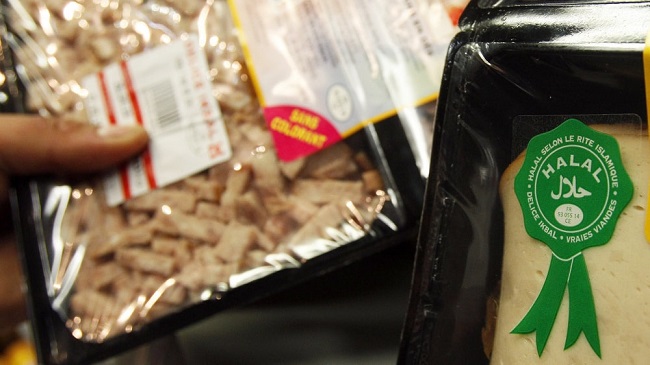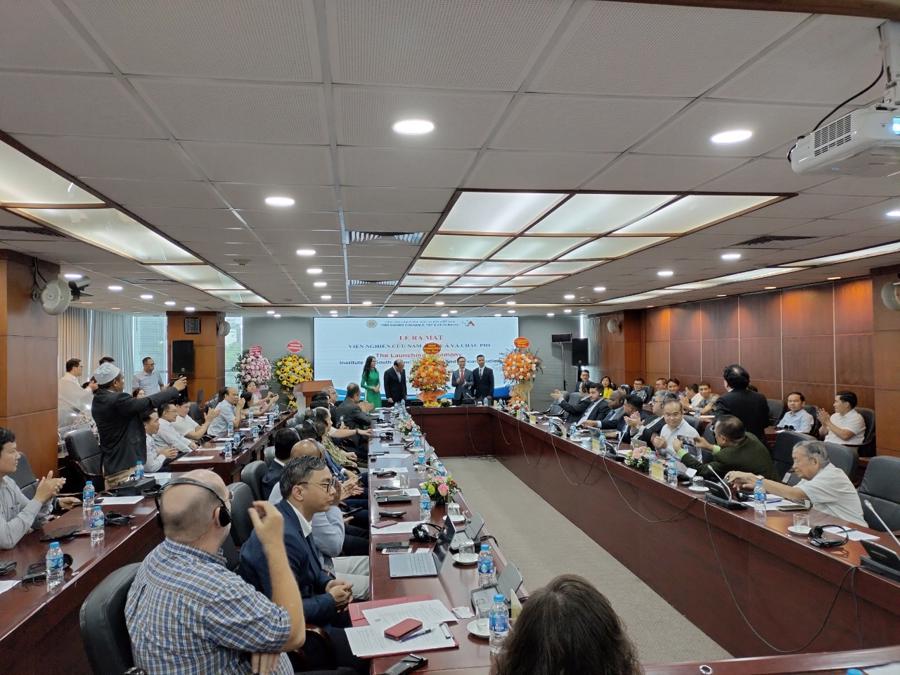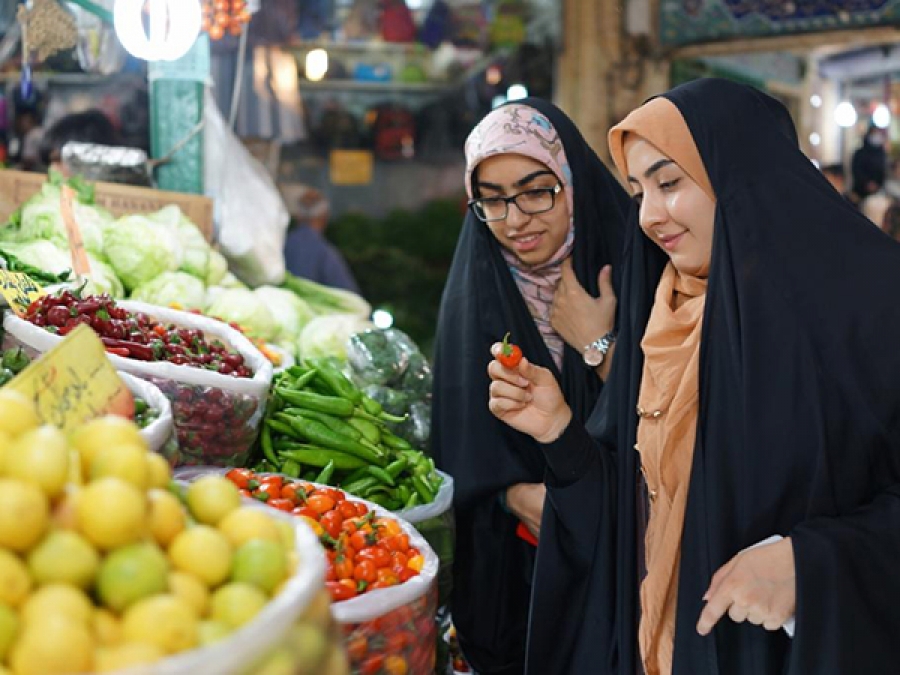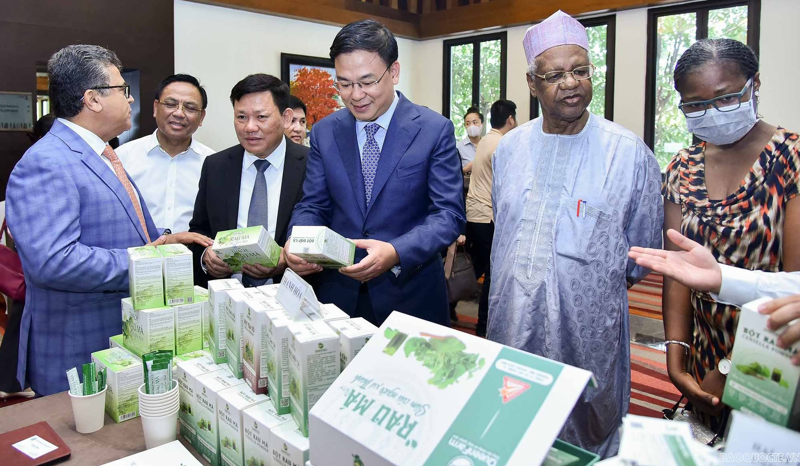(VietQ.vn) – Mastering information on the regulations and standards of the Halal market is a crucial key to facilitating the entry of Vietnamese businesses into this market.
Muslims currently make up about a quarter of the world’s population, expected to reach 30% by 2024 and 2.2 billion people by 2030. It is estimated that the global Halal market will generate $5 trillion annually and continue to grow, opening up significant opportunities for Vietnamese businesses to penetrate this market.
By 2025, Halal-certified food is expected to account for 20% of the total value of global food consumption. Thus, Vietnam’s export potential to Muslim countries is enormous.
However, this is also a highly demanding market with a stringent standards system. To open the door to this market, businesses must meet Halal standards (meaning “permitted” in Arabic). Achieving Halal certification essentially means that businesses have a key to access this market.
Understanding the regulations and standards of the Halal market is vital in helping Vietnamese businesses smoothly join this market. To help businesses and readers gain a clearer understanding of the regulations and processes for obtaining Halal certification, Vietnam Quality interviewed Mr. Mohamed Omar, CEO of Halal Certification Agency (HCA).
Mr. Omar, although the market is worth billions of dollars, some argue that we are “overlooking” the Muslim market due to the challenges of Halal certification. What is your perspective on this?
In my opinion, the view that we are overlooking the Muslim market due to Halal certification challenges is subjective. In reality, if there were very few information channels related to the Halal market in the past, in the last two years, the Halal market has been “knocking on the doors” of Vietnamese businesses.
Vietnamese businesses have proactively approached and participated in many forums and exhibitions about Halal held abroad, particularly in countries with large Muslim communities like Indonesia and Malaysia. Additionally, businesses can access Halal information through commercial counselors.
In Vietnam, the government has shown considerable interest and introduced mechanisms and policies, such as issuing plans and standards, to promote investment and access to the Halal market. Today’s talk, organized by Vietnam Quality, is also an opportunity for businesses to gain more detailed information about this market, the regulations, and how they can enter the Halal market more conveniently.
For information on Halal certification, businesses can refer to the website of certification organizations (including the Halal Certification Agency – HCA). It’s important to note that if a business wants to obtain Halal certification directly from some countries (such as Indonesia), it may take about six months, while in Vietnam, the process takes about one month. Therefore, businesses need to carefully consider to not miss the opportunity to enter the Halal market.
Businesses should also choose reputable certification organizations to assist them in meeting regulations and obtaining Halal certification.

Mr. Mohamed Omar, could you please elaborate on the specific process for obtaining Halal certification and what requirements a product must meet?
Currently, the certification process at the Halal Certification Agency (HCA) consists of several basic steps:
Step 1: Submit the Application for Certification
The client needs to provide all necessary information in forms QF03.01 and QF03.01B and select the appropriate Halal certification program for the export market. The application form includes:
– QF03.01: Application Form
– QF03.01B: List of ingredients, additives, and chemicals
The organization applying for Halal certification should thoroughly understand the export market of the product and choose one of the three certification programs: AKIM Malaysia, MUI Indonesia, or GCC (which includes UAE, Kuwait, Oman, Qatar, Saudi Arabia, Bahrain, and Yemen).
Step 2: Quotation and Contract Based on Client Information
HCA will review the certification application and inform the organization of the certification costs. A certification contract is signed once both parties agree on the certification terms.
Step 3: Stage 1 Assessment
Document Review (at the factory or via email): The business provides the required documents for a preliminary assessment before proceeding to Stage 2.
The documentation required for Stage 1 includes:
– Company introduction file (including organizational chart)
– Business registration or establishment decision
– Operational permits (if any)
– Product production process/flow chart
– Test results of the certified product
– Other certificates like ISO, HACCP, GMP, GAP (if any)
– Documentation proving that ingredients and additives do not contain any Haram components.
HCA will review the documents and inform the organization to supplement any missing information if necessary. The total time for the Stage 1 assessment should not exceed 90 days from the readiness for the assessment (including having a signed contract, submitted Stage 1 documents, and a 30% advance payment of the contract value). If this period is exceeded, the application will be considered invalid.
Step 4: Stage 2 Assessment (On-Site Production Facility Assessment)
The assessment follows international Halal standards, such as MS 1500:2019, GSO 2055-1, and MUI. The purpose of Stage 2 is to verify that the certified product meets Halal requirements to grant the certificate.
Step 5: Review Documents and Issue Certification
At the conclusion of the assessment, the evaluation team will prepare a report and send it to the organization being assessed, and to HCA for review and decision-making on certification. If any non-compliance points are found, the organization must take corrective action and send a corrective action report and supporting evidence to HCA within 30 days from the on-site assessment date. HCA is responsible for reviewing the effectiveness of the corrective actions.
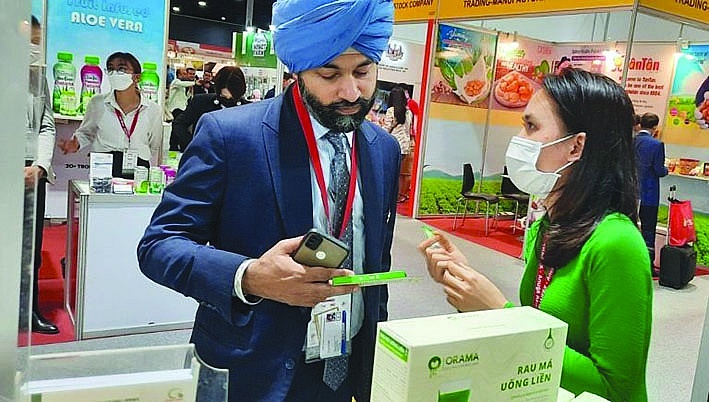
HCA evaluates and submits the assessment report and accompanying evidence to the certification board for review and scrutiny to ensure that the evaluation activities have been carried out according to requirements, procedures have been properly followed, and any non-conformities have been promptly and appropriately corrected before certification is granted.
Compliance in Halal Assessment: The Halal Certification Agency (HCA) assesses compliance with Halal requirements through regular or unannounced supervision when there is evidence that the company is not meeting Halal standards. If any changes are made by the manufacturer after the Halal certificate has been issued without prior approval from HCA, the certificate’s validity may be suspended or revoked.
What are the advantages and challenges for a certification organization operating in the Halal sector? Do you have any recommendations for mechanisms or policies for certification organizations?
In terms of advantages, Vietnamese businesses exporting to the Halal market are primarily in the agricultural sector, which is a strength for Vietnam. Since the main products are agricultural, it facilitates the process of certification organizations evaluating the compliance of raw materials to Halal standards, making it easier to trace the origins of these ingredients.
Many businesses serving the Halal market have already trained their workers and employees on Halal-related information and knowledge. This is beneficial for businesses as they can apply and comply with Halal regulations right from the production process.
Regarding challenges, the current understanding of businesses about market needs and Muslim culture is still limited. Muslim culture, lifestyle, and business practices have many differences. For information that businesses do not fully understand about Halal or the needs of the Halal market, I believe that future governmental programs will help businesses gradually grasp this. However, for Muslim culture, businesses themselves need to enhance their knowledge and conduct in-depth research.
Halal certification organizations face certain difficulties as well. For instance, importing countries frequently change or introduce new regulations and requirements, sometimes leaving certification organizations unable to update or adapt in time. This results in challenges and delays when providing guidance to businesses.
If a certification organization issues a certificate that is not approved or recognized by the authorities of the importing country, the Halal certificate provided by that organization will not be accepted, potentially leading to goods being stuck at ports.
Currently, there are up to 18 Halal certification organizations in Vietnam. While many claim they are recognized in multiple countries, this is often false information. Such organizations have created confusion in the certification market, restricting the export of Vietnamese goods to Muslim countries. If a business obtains an inaccurate Halal certification, their products will not be accepted into the Halal market, potentially leading to bans and even affecting the entire product category.
Japan is a prime example. Five years ago, there was an issue where too many certification organizations operated without proper management, leading to chaos in the certification process and preventing numerous businesses from exporting goods to the Halal market. If proper management is not ensured, Vietnam may face similar challenges in the future.
As a solution, the government needs to closely regulate Halal certification organizations, especially in line with Decree 107/2016 NĐ-CP, and strengthen international recognition and acknowledgment in the issuance and assessment of Halal certification for businesses.
Thank you very much!



